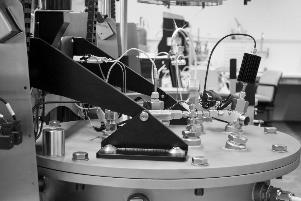Regulations & EHS&S
H.E.L Group validates battery testing to comply with Chinese regulations 29th November 2020

H.E.L Group has announced that its battery testing protocols and equipment are now fully compliant with the relevant regulations in China. Considered the most stringent in the world, the new compulsory Chinese standards are designed to further raise and optimize the technical requirements for lithium-ion (Li-ion) battery safety and the associated battery packs for electric vehicles (EV), with a focus on mechanical, electrical and thermal stress.
China became the world’s largest new energy vehicle market in 2015 and sold 1.2 million new energy vehicles in 2019, accounting for over half of all electric vehicle sales worldwide. First announced in 2019 and set to be enforced from January 2021, the incoming regulations are China’s first mandatory standards applied to Li-ion batteries including their use in the rapidly growing field of EVs. With a focus on electrical safety and functional safety, and an increase in the requirements for thermal event alarm signaling in battery systems, the regulations should for example, ensure drivers of EVs and their passengers are provided with adequate safety warnings. The standards also put higher requirements on battery safety and emphasize an improvement in battery system tests covering thermal diffusion, external fire, mechanical shock, simulated collision and humidity cycling, external short circuit, and overheating.
To ensure H.E.L’s compliance, the company has undertaken a thorough review of the guidelines to understand the implications for its specific areas of testing and technology, and also for customers, to be able to advise and ensure their compliance. This has resulted in a software and hardware development programme, including an update to the data acquisition capabilities of H.E.L’s battery testing system to meet the high data capture rate mandated by the regulations. Accompanying the regulations, H.E.L has bolstered its support infrastructure for Chinese customers, with dedicated local sales and technical representatives.
Although currently applicable to manufacturers based in China, it is expected that the new Li-ion testing procedures will need to be adopted by all companies selling batteries into China, and could become a benchmark standard for all international battery manufacturers.

